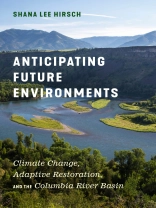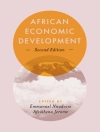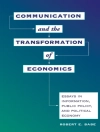Drought. Wildfire. Extreme flooding. How does climate change affect the daily work of scientists? Ecological restoration is often premised on the idea of returning a region to an earlier, healthier state. Yet the effects of climate change undercut that premise and challenge the ways scientists can work, destabilizing the idea of “normalcy” and revealing the politics that shape what scientists can do. How can the practice of ecological restoration shift to anticipate an increasingly dynamic future? And how does a scientific field itself adapt to climate change?
Restoration efforts in the Columbia River Basin—a vast and diverse landscape experiencing warming waters, less snowpack, and greater fluctuations in precipitation—may offer answers to some of these questions. Shana Hirsch tells the story of restoration science in the basin, surveying its past and detailing the work of today’s salmon habitat restoration efforts. Her analysis offers critical insight into scientific practices, emerging approaches and ways of thinking, the incorporation of future climate change scenarios into planning, and the ultimate transformation—or adaptation—of the science of ecological restoration. For scientists and environmental managers around the globe, Anticipating Future Environments will shed light on how to more effectively cope with climate change.
Giới thiệu về tác giả
Shana Lee Hirsch is a research scientist in the department of Human Centered Design and Engineering at the University of Washington.












